Iran slams censure by UN watchdog in new cloud over nuclear talks
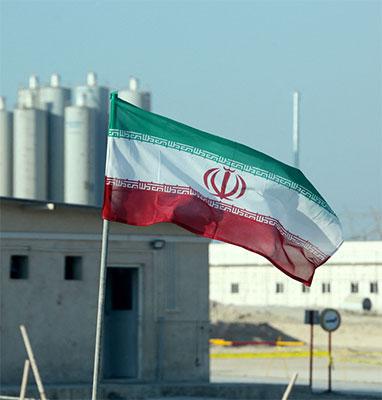
AFP
TEHRAN — Iran condemned as "unconstructive" Thursday its censure by the UN atomic energy watchdog for failing to cooperate, in a new spat that clouded efforts to revive a deal limiting its nuclear activities.
Iran already announced it had disconnected some International Atomic Energy Agency cameras monitoring its nuclear sites in anticipation of the watchdog's adoption of the Western-drafted censure motion on Wednesday.
The motion, approved by 30 of the 35 members of the IAEA board of governors, with only Russia and China voting against, was the first to criticise Iran since June 2020.
Iran's foreign ministry slammed the adoption of the resolution submitted by the United States, Britain, France and Germany as a "political, unconstructive and incorrect action".
The resolution came after the IAEA raised concerns about traces of enriched uranium previously found at three sites Tehran had not declared as having hosted nuclear activities.
The agency has said its questions about the three sites of Marivan, Varamin and Turquzabad were “not clarified” in its meetings with Iranian authorities.
Iran, which had already responded angrily to Grossi’s decision to visit Israel ahead of the board of governors meeting, accused the watchdog of relying too much on “fabricated” Israeli intelligence reports.
Israeli Prime Minister Naftali Bennett welcomed the IAEA’s censure of Iran.
“We see here a firm stance by the countries of the world regarding the distinction between good and evil, as they clearly state that Iran is concealing things,” Bennett said before heading to fellow Iran critic, the United Arab Emirates, for a previously unannounced visit on Thursday.
The foreign ministry said Iran had already taken steps in response to the IAEA censure motion, including the installation of advanced centrifuges for uranium enrichment and the deactivation of monitoring cameras.
In a statement on Wednesday, Iran’s Atomic Energy Organisation stressed that the cameras it had disconnected were not part of its safeguard agreement with the UN watchdog.
After the adoption of the resolution, the US, Britain, France and Germany urged Iran “to fulfil its legal obligations and cooperate with the IAEA”.
The US State Department said that if confirmed, Iran’s reported counter-measures were “extremely regrettable” and “counterproductive” to attempts to revive the 2015 nuclear deal.
The landmark agreement set limits to Iran’s nuclear activities in return for relief from international sanctions — but it has been in disarray since then US president Donald Trump unilaterally withdrew from it in 2018 and reimposed crippling sanctions.
In response, Iran, which has repeatedly denied any ambition to develop a nuclear weapons capability, began rolling back on its own commitments under the deal.
Talks began in April last year on reviving the agreement through the lifting of US sanctions and Iran’s return to full compliance but they have stalled in recent months.
Eric Brewer, an analyst at the non-profit Nuclear Threat Initiative, told AFP the impact of the IAEA vote on the nuclear talks might be limited as the remaining obstacles to a deal “have little to do with the nuclear issue”.
“While events at the Board of Governors meeting in Vienna probably won’t help, I doubt they’re going to make the chances of reviving the deal dramatically worse,” he said, even though he described Iran’s latest steps as a “deeply troubling decision”.
European capitals have expressed mounting concern over how far Iran has gone in resuming nuclear activities since the US began reimposing sanctions.
Iran has built up large stockpiles of enriched uranium, some of it enriched to levels far higher than those needed for nuclear power generation.
The IAEA chief said Monday that it would be “a matter of just a few weeks” before Iran could get sufficient material needed for a nuclear weapon if it continues to develop its programme.
Henry Rome, a director at the Eurasia Group, described the next few weeks as “critical” with the onus primarily on Iran.
“It remains unclear whether the embarrassment of the resolution will cause a recalibration in Tehran or further fuel the recalcitrance that brought it about in the first place,” he said.
Latest News
-
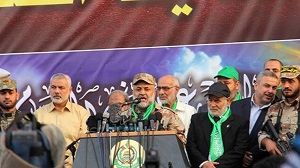 'Israel' targets Hamas commander in Gaza strike
'Israel' targets Hamas commander in Gaza strike
-
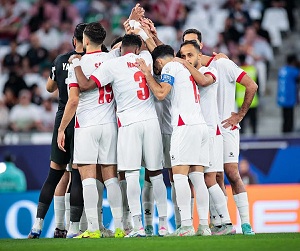 Jordan beat Iraq 1-0 to face Saudi Arabia in Arab Cup semi-finals
Jordan beat Iraq 1-0 to face Saudi Arabia in Arab Cup semi-finals
-
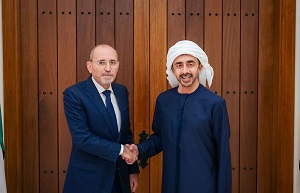 Safadi, UAE counterpart hold talks on bilateral ties, region
Safadi, UAE counterpart hold talks on bilateral ties, region
-
 Learn About the Caesar Act in Syria, Recently Repealed by the U.S. House of Representatives
Learn About the Caesar Act in Syria, Recently Repealed by the U.S. House of Representatives
-
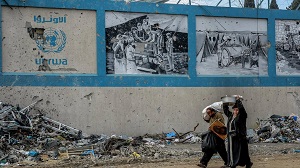 Trump administration weighs sanctions on UNRWA: Reuters
Trump administration weighs sanctions on UNRWA: Reuters